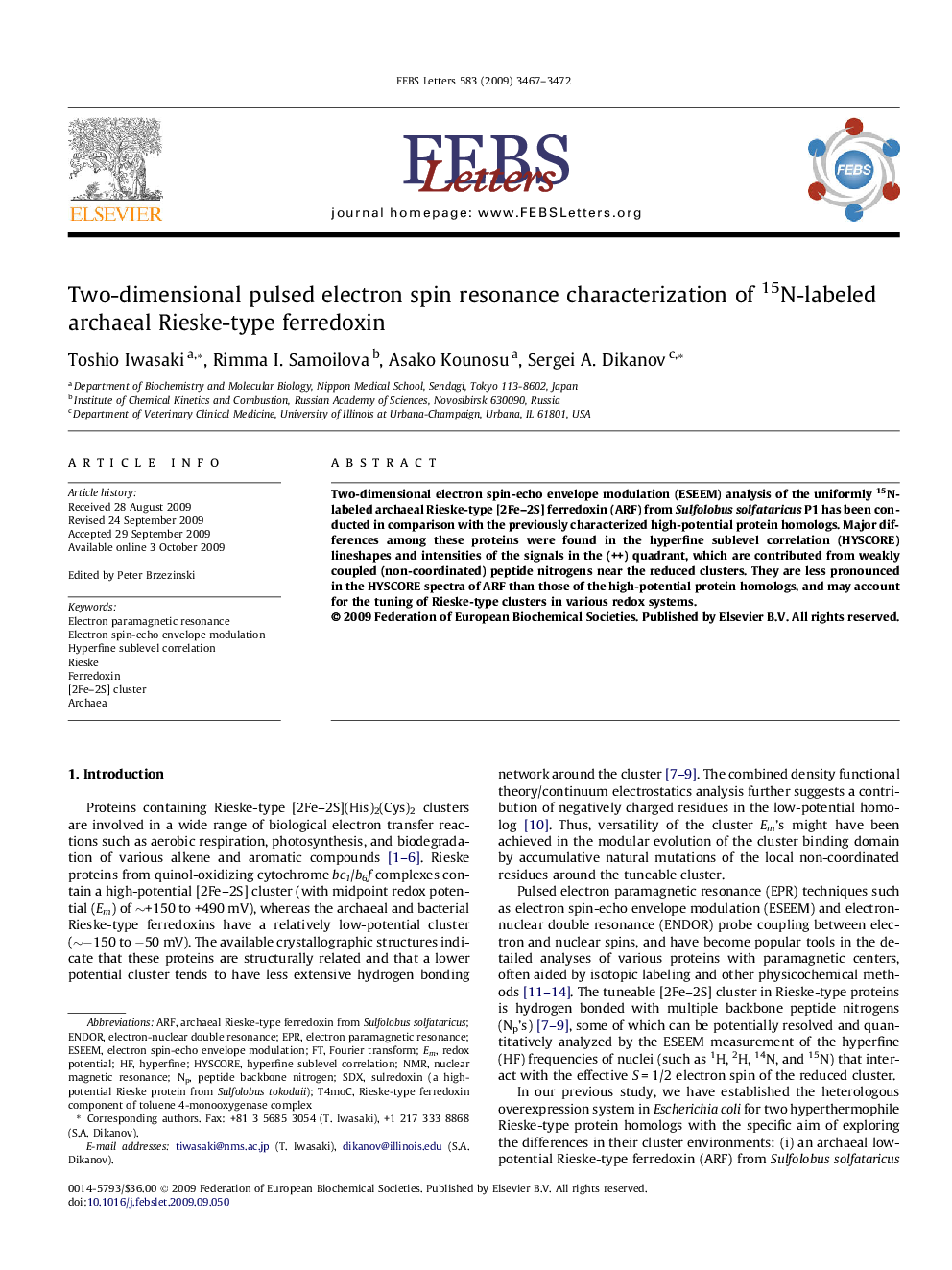| Article ID | Journal | Published Year | Pages | File Type |
|---|---|---|---|---|
| 2049380 | FEBS Letters | 2009 | 6 Pages |
Abstract
Two-dimensional electron spin-echo envelope modulation (ESEEM) analysis of the uniformly 15N-labeled archaeal Rieske-type [2Fe–2S] ferredoxin (ARF) from Sulfolobus solfataricus P1 has been conducted in comparison with the previously characterized high-potential protein homologs. Major differences among these proteins were found in the hyperfine sublevel correlation (HYSCORE) lineshapes and intensities of the signals in the (++) quadrant, which are contributed from weakly coupled (non-coordinated) peptide nitrogens near the reduced clusters. They are less pronounced in the HYSCORE spectra of ARF than those of the high-potential protein homologs, and may account for the tuning of Rieske-type clusters in various redox systems.
Keywords
Related Topics
Life Sciences
Agricultural and Biological Sciences
Plant Science
Authors
Toshio Iwasaki, Rimma I. Samoilova, Asako Kounosu, Sergei A. Dikanov,
